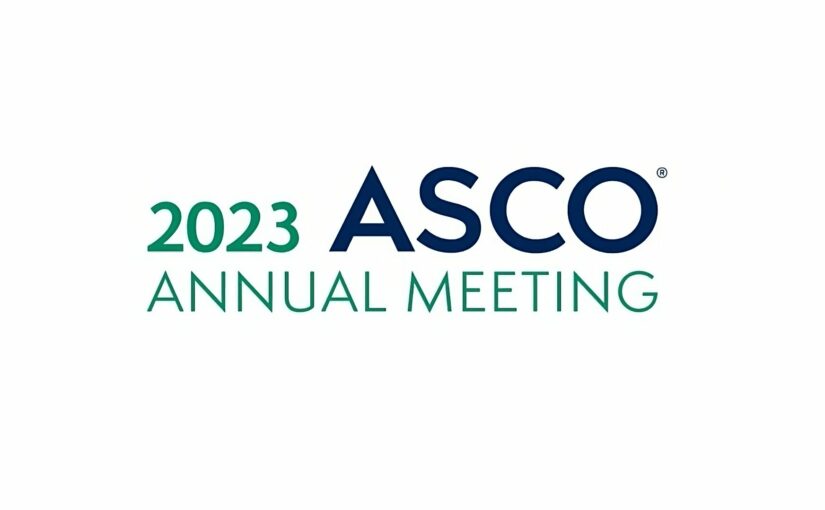Treatment with avutometinib plus defactinib elicited high responses among patients with recurrent low grade serous ovarian cancer compared with avutometinib monotherapy, supporting the use of the combination in this patient population regardless of KRAS status, according to data from the RAMP 201 trial.
Treatment with avutometinib (VS-6766) plus defactinib (VS-6063) elicited high responses among patients with recurrent low grade serous ovarian cancer (LGSOC) compared with avutometinib monotherapy, supporting the use of the combination in this patient population regardless of KRAS status, according to data from the RAMP 201 (NCT04625270) trial. Results were presented by Susana Banerjee, MBBS, MA, PhD, FRCP, during the 2023 ASCO Annual meeting.1
In the randomized phase 2 trial evaluating the first-in-class oral RAF/MEK clamp avutometinib—designed to inhibit MEK and block RAF-mediated phosphorylation of MEK2—and the selective FAK inhibitor defactinib, patients achieved confirmed objective response rates (ORRs) of 10% (95% CI, 2%-24%) with avutometinib monotherapy (n = 31) and 45% (95% CI, 26%-64%) with the combination arm (n = 29) per board of institutional review.1

LGSOC, a RAS/MAPK pathway-driven cancer, accounts for 10% or less of ovarian cancers; there are no FDA-approved treatments specific to this population. Banerjee, a Consultant Medical Oncologist and Research Lead for the Gynecology Unit at the Royal Marsden NHS Foundation Trust and Institute of Cancer Research in Sutton, England, noted that current options for this patient population yield responses ranging from 0% to 26%.
“Key objectives for part A of the [RAMP 201] study were achieved. Avutometinib (3.2 mg orally twice weekly 21/28 days) and defacitinib (200 mg orally twice daily 21/28 days) has been selected as the go-forward regimen in patients with recurrent LGSOC,” Banerjee wrote in a presentation of the data.1
“Avutometinib…potently inhibits MEK kinase activity while also blocking the compensatory reactivation of MEK by upstream RAF. Defacitinib…has been shown to mediate resistance to multiple anticancer agents,” Banerjee and coauthors explained.1,2
In the efficacy-evaluable patient population, those receiving avutometinib monotherapy in the KRAS-mutant (n = 15) and KRAS wild-type (n = 16) groups experienced a confirmed ORR of 13% and 6%, respectively. The disease control rates (DCRs) were 93% and 88%, in the KRAS-mutant and KRAS wild-type groups, respectively, and was 93% in the monotherapy group overall.
Patients receiving avutometinib plus defactinib (n = 29) in the KRAS-mutant (n = 15) and KRAS wild-type (n = 14) groups achieved ORRs of 60% and 29%, respectively. The DCRs were 100% and 79%, respectively, and 90% in the doublet group overall.
Stable disease (SD) was reported in the avutometinib group in 80% of those with KRAS mutations and 81% of those with KRAS wild-type disease, overall the rate was 83% in the monotherapy cohort. In the avutometinib plus defactinib group, SD was reported in 40%, 50%, and 45% of patients with KRAS mutations, KRAS wild-type disease, and in the combination cohort overall, respectively. Patients in the avutometinib arm experienced progressive disease at rates of 7% among those with KRAS-mutant disease, 13% for those with KRAS wild-type disease, and 10% overall. Those receiving avutometinib plus defactinib experienced rates of 0%, 21%, and 10% overall, respectively.
The median time to response was 7.3 months (range, 2.1-11.0) in the monotherapy arm and 5.5 months (range, 1.6-14.7) in the combination arm. Further, median duration of response and progression-free survival have not been reached.
There was 1 complete response (7%) reported on the study and it was in a patient with KRAS-mutant disease who received avutometinib monotherapy. Although the confirmed plus unconfirmed ORRs were the same as the confirmed ORRs in the avutometinib monotherapy arm, the doublet arm had higher confirmed plus unconfirmed ORRs than confirmed rates with a 73% ORR in the KRAS mutant group and 29% in the KRAS wild-type group.
Additionally, 86% of patients in the combination arm and 90% in the monotherapy arm experienced tumor shrinkage. Responses were observed in 1 of 10 patients in the monotherapy arm who previously received MEK inhibitor therapy and in 3 of 4 patients in the combination arm.
Safety
No new safety signals were observed, and the safety profile was consistent with previously reported data on the agents. In the safety population, dose reductions for those receiving avutometinib plus defactinib (n = 81) and avutometinib (n = 70) occurred in 29% and 17% of patients, respectively. In the combination arm, 12.3% of patients discontinued avutometinib or defactinib because of a grade 1 or higher treatment-emergent adverse events with 4.9% due to elevated blood creatine phosphokinase (CPK).
“Relative dose intensity [for] avutometinib [was] 80% ± 20% in part A [and] 81% ± 21% [for] all patients,” the study authors wrote. “Avutometinib plus defactinib [was] 83% ± 20% in part A [and] 79% ± 23% [for] all patients.”
The most frequent treatment related adverse events (TRAEs) occurring in all patients in the monotherapy arm and combination arms at any grade were nausea (55.7% vs 61.7%), diarrhea (71.4% vs 49.4%), blood CPK increase (50.0% vs 48.1%), edema peripheral (48.6% vs 42.0%), vomiting (40.0% vs 37.0%), and blurred vision (41.4% vs 35.8%), respectively. A majority of these events were grade 1/2 in severity.
Grade 3 or higher TRAEs included increased blood CPK (22.9% vs 18.5%), anemia (11.4% vs 3.7%), dermatitis acneiform (8.6% vs 2.5%), vomiting (5.7% vs 0%), nausea (4.3% vs 0%), and diarrhea (4.3% vs 3.7%) among others in the monotherapy vs combination arms, respectively.
Enrollment
Avutometinib was given orally at either 4 mg twice weekly for 3 weeks on and 1 week off or at 3.2 mg twice weekly with defactinib given orally at 200 mg twice daily for 3 weeks on and 1 week off.
Patients in the study were previously treated with chemotherapy and treatment with MEK inhibitors was allowed. Part A of the study was the selection phase and part B the expansion, both consisting of 4 arms evaluating the monotherapy vs combination therapy in patients with KRAS-mutant and KRAS wild-type disease. Part C is a combination arm expansion that is ongoing and enrolling irrespective of KRAS mutation status to further categorize safety and efficacy.
Disclosures: Dr Banerjee has honoraria with Amgen, AstraZeneca, Clovis Oncology, GlaxoSmithKline, Immunogen, Mersana, MSD Oncology, Novocure, Pfizer, Roche, and Takeda. She has received research funding from AstraZeneca and GlaxoSmithKline and has a consulting or advisory role with Astrazeneca, Epsilogen, GlaxoSmithKline, Immunogen, Mersana, MSD Oncology, Novartis, OncXerna Therapeutics, Regeneron, Seagen, and Shattuck Labs. She also has stock and other ownership interests with Perci Health.
References
- Banerjee SN, Ring KL, Nieuwenhuysen EV, at al. Initial efficacy and safety results from ENGOT-ov60/GOG-3052/RAMP 201: a phase 2 study of avutometinib (VS-6766) ± defactinib in recurrent low-grade serous ovarian cancer (LGSOC). J Clin Oncol. 2023;41(suppl 16):5515. doi:10.1200/JCO.2023.41.16_suppl.5515
- Rodney S. Stewart AR, Sanchez Perez V, et al. Preclinical and clinical evaluation of the RAF/MEK clamp avutometinib (VS-6766) in combination with the mTOR inhibitor everolimus for the treatment of KRAS mutated non-small cell lung cancer. Cancer Res. 2023;87(suppl 7):3461. doi:10.1158/1538-7445.AM2023-3461
This article was published by: OncLive


